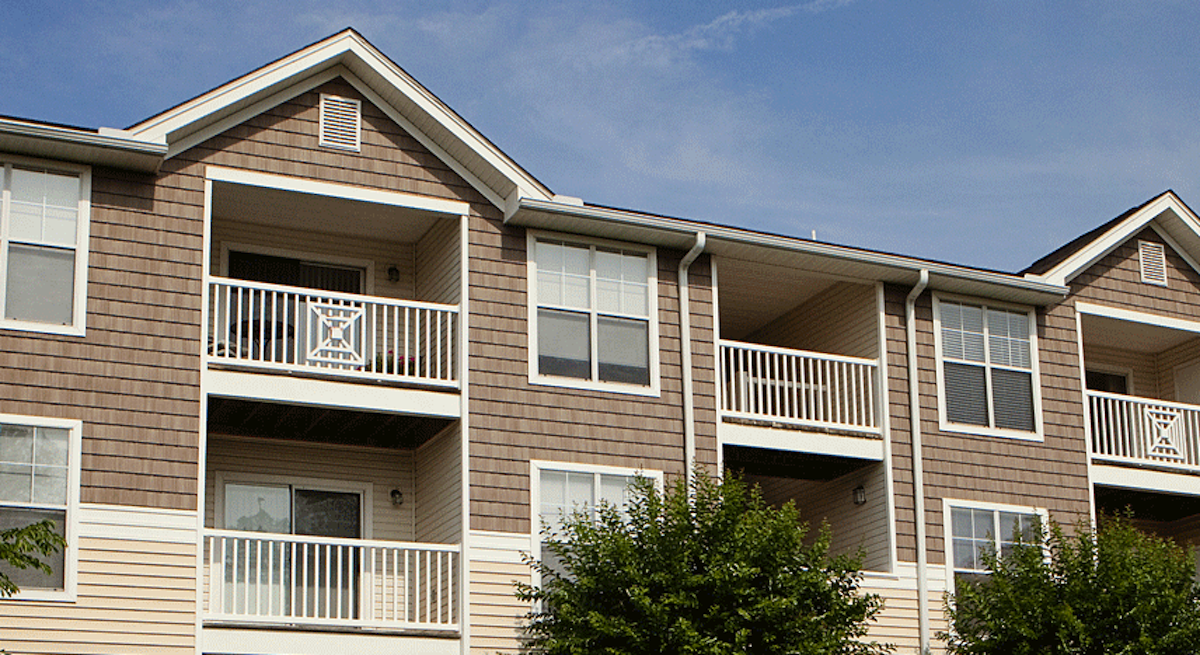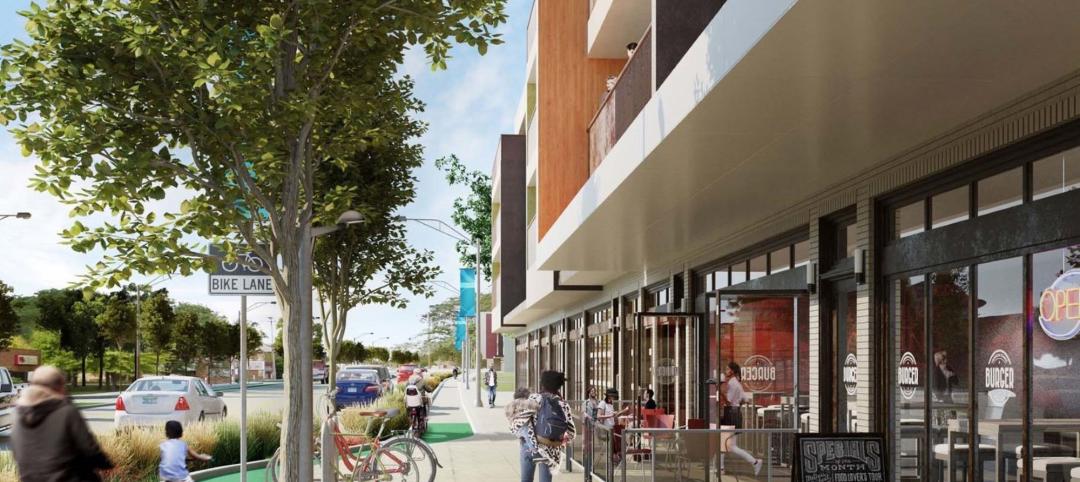When investor John Goense started Response Team 1 in 2010 by acquiring BKA General Contractors in Nashville, he anticipated that his company, as it expanded, would focus primarily on single-family disaster restoration projects from fires, flooding, snowstorms and other such events that were covered by homeowners insurance.
The early performance of that business certainly indicated that it was on the right track. Its revenue from 2010 to 2013 increased by 1,124%, making Response Team 1 one America’s fastest-growing private companies, according to Inc. magazine. It currently claims to be the country’s largest single-family restoration business.
During that four-year period, Response Team 1 also developed what Goense, its CEO and chairman, says was “a small, in-house renovation business” for commercial clients that had either bought a property or wanted to upgrade an existing building. Then, last November, the Wheeling, Ill.-based company acquired The Renovation Group (TRG) in Brentwood, Tenn. This deal catapulted Response Team 1 into the ranks of the country’s top multifamily renovators.
Multifamily and commercial projects now account for 50% of Response Team 1’s revenue, which last year hit $173 million.
The biggest commercial project Response Team 1 has taken on so far has been the restoration of a courthouse in Wisconsin. Its multifamily work, according to its website, includes fire and smoke damage restoration, mold removal and remediation, water damage repair, and remodeling. Most of its projects are for midrise apartment and college campus buildings. “We’re more focused on working with property owners and managers than with HOAs,” Goense explains. And campus projects are mostly restorations. (Arizona State University is one of its largest customers.)
Response Team 1, which operates 25 offices that serve 34 states in the West, Midwest, and Southeast, is one of several businesses owned by Chicago-based Goense & Company, a private equity investment firm that Goense and his partner Erik Bloom formed in 2008. Its investment strategy has been to target small to midsize companies with market niches or that operate in fragmented industries. The firm’s portfolio, according to its website, includes a document imaging dealer; a pharmacy automation company; electrical, plumbing, and drywall contractors; and a provider of maintenance and installation services for voice, data, wireless, paging, and point of sale systems for retailers.
Darren Magda, who started TRG as a deck builder 20 years ago and shifted to multifamily renovation a decade ago, says he became interested it joining forces with a larger enterprise when clients started asking TRG to do jobs on their apartment buildings in places like Texas and California, well beyond its geographic comfort zone. Magda says that because Response Team 1 has a “national footprint,” as well as a local presence in places like Denver and Phoenix, TRG can coordinate labor and project management for clients through with buildings in different parts of the country.
Response Team 1 merged TRG with CAPRO, a multifamily renovation company based in Raleigh, N.C., that Response Team 1 had spun off several years earlier. Combined, the two renovators generated about $24 million in revenue last year, and Magda—who stayed on as a vice president with Response Team 1—thinks that figure could rise by at least 50% in 2015 under Response Team 1’s corporate umbrella.
Goense expects Response Team 1, in total, to generate about $200 million from its existing offices in 2015, and another $50 million to $100 million from mergers and acquisitions. “I look at our service area, and it only represents 12% if the U.S. population.” When he spoke with BD+C in early March, Response Team 1 had just established a fourth region, the Mid Atlantic, that would serve residential and commercial customers in Philadelphia and southern New Jersey, Baltimore, and Washington D.C.
Response Team 1’s expansion is being driven primarily by its regional footprint; Goense’s goal is for his company to serve every 1 million-plus market within its regions.
Like other construction companies, Response Team 1’s ability to grow is contingent on maintaining a reliable workforce. “That’s one of the hardest things for businesses like ours,” he says. However, Goense states that his company “has a very active flow of people coming to us.” Response Team 1 recently set up an internal “university” for training purposes. And, he adds, “we use a lot of subs,” and has steady access to them because “we pay fairly and on time.”
Related Stories
MFPRO+ New Projects | Oct 30, 2024
BIG’s One High Line finally reaches completion in New York City’s West Chelsea neighborhood
One High Line, a luxury residential project spanning a full city block in New York’s West Chelsea neighborhood, reached completion this summer following years of delays related to investor lawsuits.
MFPRO+ New Projects | Oct 30, 2024
Luxury waterfront tower in Brooklyn features East River and Manhattan skyline views
Leasing recently began for The Dupont, a 41-story luxury rental property along the Brooklyn, N.Y., waterfront. Located within the 22-acre Greenpoint Landing, where it overlooks the newly constructed Newtown Barge Park, the high-rise features East River and Manhattan skyline views along with 20,000 sf of indoor and outdoor communal space.
Multifamily Housing | Oct 28, 2024
A case for mid-rise: How multifamily housing can reshape our cities
Often referred to as “five-over-ones,” the mid-rise apartment type is typically comprised of five stories of apartments on top of a concrete “podium” of ground-floor retail. The main criticism of the “five-over-one” is that they are often too predictable.
Adaptive Reuse | Oct 22, 2024
Adaptive reuse project transforms 1840s-era mill building into rental housing
A recently opened multifamily property in Lawrence, Mass., is an adaptive reuse of an 1840s-era mill building. Stone Mill Lofts is one of the first all-electric mixed-income multifamily properties in Massachusetts. The all-electric building meets ambitious modern energy codes and stringent National Park Service historic preservation guidelines.
MFPRO+ News | Oct 22, 2024
Project financing tempers robust demand for multifamily housing
AEC Giants with multifamily practices report that the sector has been struggling over the past year, despite the high demand for housing, especially affordable products.
Products and Materials | Oct 17, 2024
5 multifamily tech products for your next project
Multifamily housing and technological upgrades go hand-in-hand. From the rise in electric vehicle charging needs to the sophistication of smart home accessories, tech products are abound in the multifamily space.
Codes and Standards | Oct 16, 2024
North Carolina’s code policies likely worsened damage caused by Hurricane Helene
The North Carolina Legislature’s rejection of building code updates likely worsened the damage caused by Hurricane Helene, code experts say. Over the past 15 years, lawmakers rejected limits on construction on steep slopes, which might have reduced the number of homes destroyed by landslides.
MFPRO+ News | Oct 16, 2024
One-third of young adults say hurricanes like Helene and Milton will impact where they choose to live
Nearly one-third of U.S. residents between 18 and 34 years old say they are reconsidering where they want to move after seeing the damage wrought by Hurricane Helene, according to a Redfin report. About 15% of those over age 35 echoed their younger cohort’s sentiment.
Student Housing | Oct 9, 2024
University of Maryland begins work on $148 million graduate student housing development
The University of Maryland, in partnership with Campus Apartments and Mosaic Development Partners, has broken ground on a $148.75 million graduate student housing project on the university’s flagship College Park campus. The project will add 741 beds in 465 fully furnished apartments.
MFPRO+ News | Oct 9, 2024
San Francisco unveils guidelines to streamline office-to-residential conversions
The San Francisco Department of Building Inspection announced a series of new building code guidelines clarifying adaptive reuse code provisions and exceptions for converting office-to-residential buildings. Developed in response to the Commercial to Residential Adaptive Reuse program established in July 2023, the guidelines aim to increase the viability of converting underutilized office buildings into housing by reducing regulatory barriers in specific zoning districts downtown.

















